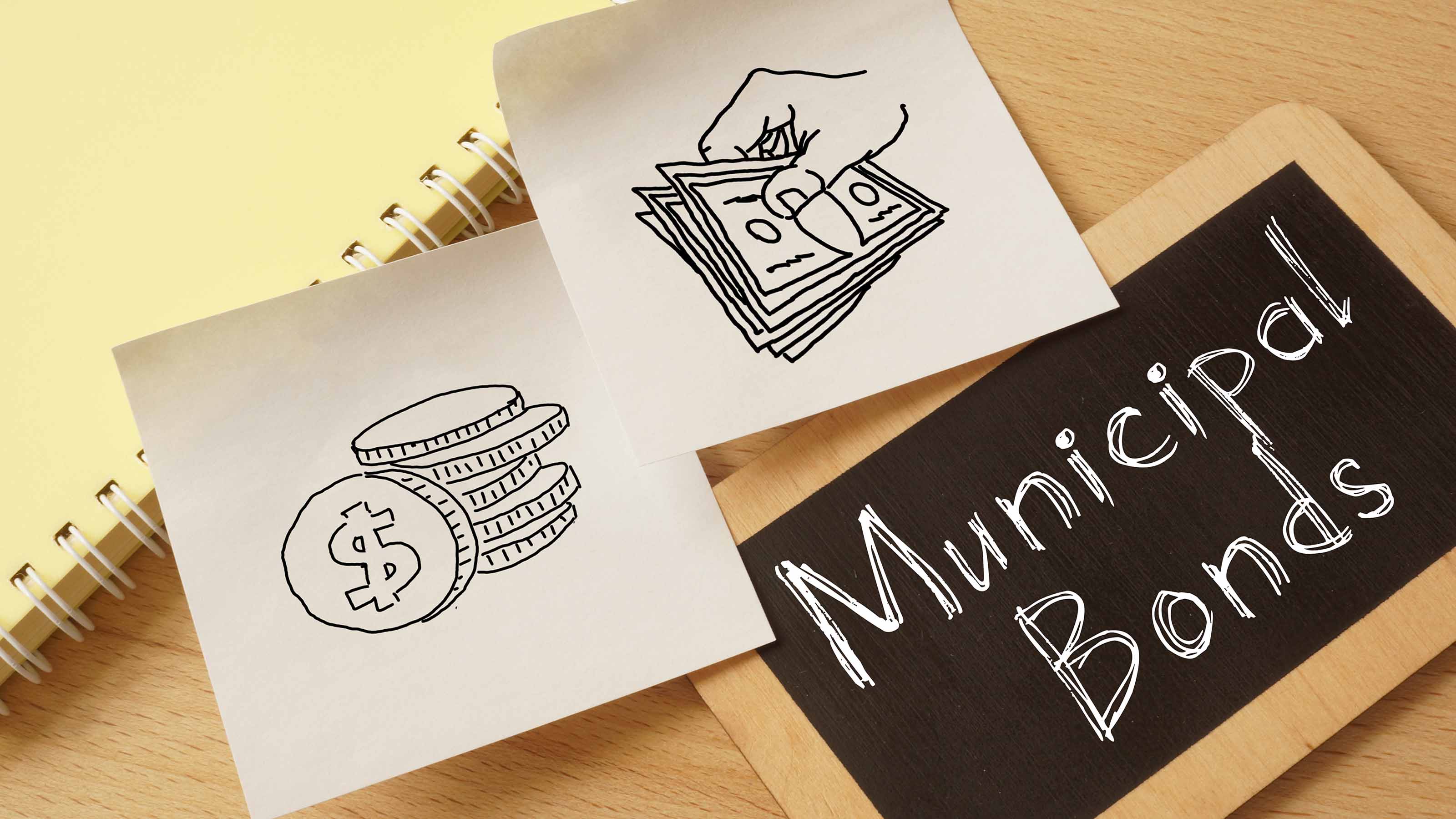What Investors Should Do in Today's Market
Before you make a move, know how much risk you can handle.


Profit and prosper with the best of Kiplinger's advice on investing, taxes, retirement, personal finance and much more. Delivered daily. Enter your email in the box and click Sign Me Up.
You are now subscribed
Your newsletter sign-up was successful
Want to add more newsletters?

Delivered daily
Kiplinger Today
Profit and prosper with the best of Kiplinger's advice on investing, taxes, retirement, personal finance and much more delivered daily. Smart money moves start here.

Sent five days a week
Kiplinger A Step Ahead
Get practical help to make better financial decisions in your everyday life, from spending to savings on top deals.

Delivered daily
Kiplinger Closing Bell
Get today's biggest financial and investing headlines delivered to your inbox every day the U.S. stock market is open.

Sent twice a week
Kiplinger Adviser Intel
Financial pros across the country share best practices and fresh tactics to preserve and grow your wealth.

Delivered weekly
Kiplinger Tax Tips
Trim your federal and state tax bills with practical tax-planning and tax-cutting strategies.

Sent twice a week
Kiplinger Retirement Tips
Your twice-a-week guide to planning and enjoying a financially secure and richly rewarding retirement

Sent bimonthly.
Kiplinger Adviser Angle
Insights for advisers, wealth managers and other financial professionals.

Sent twice a week
Kiplinger Investing Weekly
Your twice-a-week roundup of promising stocks, funds, companies and industries you should consider, ones you should avoid, and why.

Sent weekly for six weeks
Kiplinger Invest for Retirement
Your step-by-step six-part series on how to invest for retirement, from devising a successful strategy to exactly which investments to choose.
Every month our staff meets to brainstorm story ideas for the investing section. Our meeting for this issue had us in something of a pickle. As one editor put it, “I don’t know what to say. It’s a tough time to be an investor.”
Consider the litany of risks in today’s markets. Interest rates continue to plummet, increasing chances that long-term bonds would be highly vulnerable to an eventual rise in rates. Stocks, the obvious alternative, have risks of their own, with a jittery bull market susceptible to shocks such as the United Kingdom’s vote to leave the European Union (see What Brexit Means for U.S. Investors and The Three Day Rule for Rattled Investors). Particularly worrisome are high-dividend stocks—notably utilities, whose prices have been pushed up by income-starved investors.
Nervous investors who get out of the markets may feel safer, but they won’t be any richer; cash savings are yielding next to nothing. And then there’s the uncertainty associated with a low-growth economy, a high-tension political campaign and global angst. Bank of America Merrill Lynch concludes: “The only certainty is uncertainty.”
From just $107.88 $24.99 for Kiplinger Personal Finance
Become a smarter, better informed investor. Subscribe from just $107.88 $24.99, plus get up to 4 Special Issues

Sign up for Kiplinger’s Free Newsletters
Profit and prosper with the best of expert advice on investing, taxes, retirement, personal finance and more - straight to your e-mail.
Profit and prosper with the best of expert advice - straight to your e-mail.
The outcome of our brainstorming session was a suite of stories that offer something for every investor, depending on your preferences and your personal situation.
Senior associate editor Nellie Huang and senior editor Anne Kates Smith make the case for value stocks—stocks that are cheap in relation to a company’s sales, profits or underlying assets. Growth stocks have led the charge over the past decade, but so far this year, value is ahead. Nellie says she favors active managers who “invest opportunistically and buy on little dips.”
For investors who prefer an indexed approach, associate editor Daren Fonda makes the case for exchange-traded funds with rock-bottom expenses. In his one-year update of the Kiplinger ETF 20—our top choices among ETFs—Daren adds a new fund that invests in mortgages and other types of real estate debt. He assembles three portfolios, for aggressive, moderate and conservative investors, plus an all-income package. Whatever your goals, the portfolios “can serve as the bedrock of your investment program for years,” writes Daren—Brexit votes and other market crises notwithstanding.
If the stock market still has you spooked, senior editor Jeff Kosnett makes the case for individual bonds. It’s true that if interest rates were to rise, bond prices would fall. But you can protect yourself, and lock in your yield, by purchasing individual bonds, rather than funds, and holding them to maturity. As Jeff writes, “As long as the issuer makes good on its obligations, you know that you’ll get back the face value of the bond.”
The risk factor. Before you make any move, it’s critical to know how much risk you can handle. In our July story on The Right Retirement Mix, we wrote about the difference between risk tolerance—a measure of your psychological ability to handle losses—and risk capacity—a practical measure of how much you’ll need to cover your retirement expenses and how much you can afford to lose. As one reader observed in a recent letter to the editor, you need to consider both. And wherever you are on that scale, we’ll give you options, no matter how tough a time it is to invest.
Profit and prosper with the best of Kiplinger's advice on investing, taxes, retirement, personal finance and much more. Delivered daily. Enter your email in the box and click Sign Me Up.

Janet Bodnar is editor-at-large of Kiplinger's Personal Finance, a position she assumed after retiring as editor of the magazine after eight years at the helm. She is a nationally recognized expert on the subjects of women and money, children's and family finances, and financial literacy. She is the author of two books, Money Smart Women and Raising Money Smart Kids. As editor-at-large, she writes two popular columns for Kiplinger, "Money Smart Women" and "Living in Retirement." Bodnar is a graduate of St. Bonaventure University and is a member of its Board of Trustees. She received her master's degree from Columbia University, where she was also a Knight-Bagehot Fellow in Business and Economics Journalism.
-
 Dow Leads in Mixed Session on Amgen Earnings: Stock Market Today
Dow Leads in Mixed Session on Amgen Earnings: Stock Market TodayThe rest of Wall Street struggled as Advanced Micro Devices earnings caused a chip-stock sell-off.
-
 How to Watch the 2026 Winter Olympics Without Overpaying
How to Watch the 2026 Winter Olympics Without OverpayingHere’s how to stream the 2026 Winter Olympics live, including low-cost viewing options, Peacock access and ways to catch your favorite athletes and events from anywhere.
-
 Here’s How to Stream the Super Bowl for Less
Here’s How to Stream the Super Bowl for LessWe'll show you the least expensive ways to stream football's biggest event.
-
 What Fed Rate Cuts Mean For Fixed-Income Investors
What Fed Rate Cuts Mean For Fixed-Income InvestorsThe Fed's rate-cutting campaign has the fixed-income market set for an encore of Q4 2024.
-
 If You'd Put $1,000 Into Bank of America Stock 20 Years Ago, Here's What You'd Have Today
If You'd Put $1,000 Into Bank of America Stock 20 Years Ago, Here's What You'd Have TodayBank of America stock has been a massive buy-and-hold bust.
-
 The Most Tax-Friendly States for Investing in 2025 (Hint: There Are Two)
The Most Tax-Friendly States for Investing in 2025 (Hint: There Are Two)State Taxes Living in one of these places could lower your 2025 investment taxes — especially if you invest in real estate.
-
 The Final Countdown for Retirees with Investment Income
The Final Countdown for Retirees with Investment IncomeRetirement Tax Don’t assume Social Security withholding is enough. Some retirement income may require a quarterly estimated tax payment by the September 15 deadline.
-
 Is A Recession Looming? Two Big Bank CEOs See It That Way
Is A Recession Looming? Two Big Bank CEOs See It That WayRecession is likely, Citi's CEO told a Senate panel today, a sentiment echoed by JP Morgan's chief executive last week.
-
 Dividends Are in a Rut
Dividends Are in a RutDividends may be going through a rough patch, but income investors should exercise patience.
-
 Municipal Bonds Stand Firm
Municipal Bonds Stand FirmIf you have the cash to invest, municipal bonds are a worthy alternative to CDs or Treasuries – even as they stare down credit-market Armageddon.
-
 High Yields From High-Rate Lenders
High Yields From High-Rate LendersInvestors seeking out high yields can find them in high-rate lenders, non-bank lenders and a few financial REITs.